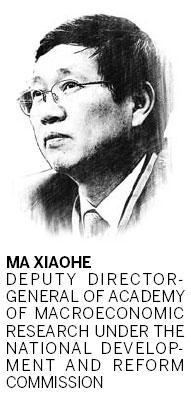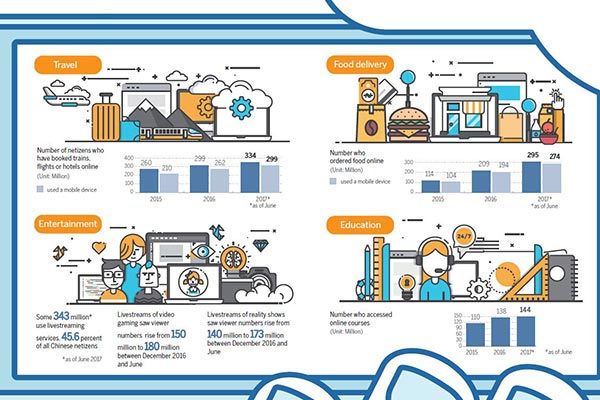Long road for consumption to go

It will be difficult for consumption to replace investment as a major driving force for China's economy in short to medium term, said a senior economist at a government think tank.
China's high investment growth will continue from 2013-2015, coinciding with a period of slow growth as the economy goes through a cyclical downswing, Ma Xiaohe, deputy director-general of the Academy of Macroeconomic Research under the National Development and Reform Commission, told China Daily.
China's growth has become more reliant on credit-fueled investment in recent years, after exports sustained a blow from the global slowdown that began in 2008.
But it's evident that an increasing contribution of investment to growth has led to problems such as overcapacity and credit bubbles.
There is still "impetus and space" for China to maintain the trend of high investment growth, but the investment structure must be optimized, he said.
Infrastructure and services involving water, roads and electricity in China's villages need to be improved. For instance, more than 300 million rural people are drinking unsafe water, according to official data.

"The role played by investment cannot be totally denied, and China still has great potential to boost public investment," said Ma.
But strict limits should be set on investing in energy-intensive, high-emission industries or building new towns. Investment should be injected into areas that are generally beneficial to lower the costs of public services, he added.
As the government aims to have consumption play a larger role in its investment-led economy, reforms in consumption's favor should be put into place, said Ma.
Decisions for investing can be made by a few people in short period, so it has been frequently used to stimulate the economy during slowdowns or crises.
Purchasing decisions, however, are made by highly fragmented consumers who are restricted by their income levels.
"China's economic growth mechanism and existing policy arrangements are more advantageous to investment than consumption," said Ma.
"An increasing proportion of earnings went to government and enterprises in recent years. Such a distribution pattern is certainly in favor of investment expanding, not consumption," he said.
Household earnings only account for about 50 percent of China's national income, compared with about 68 percent in developing countries and about 75 percent in developed countries, according to Ma.
Don't miss:


















